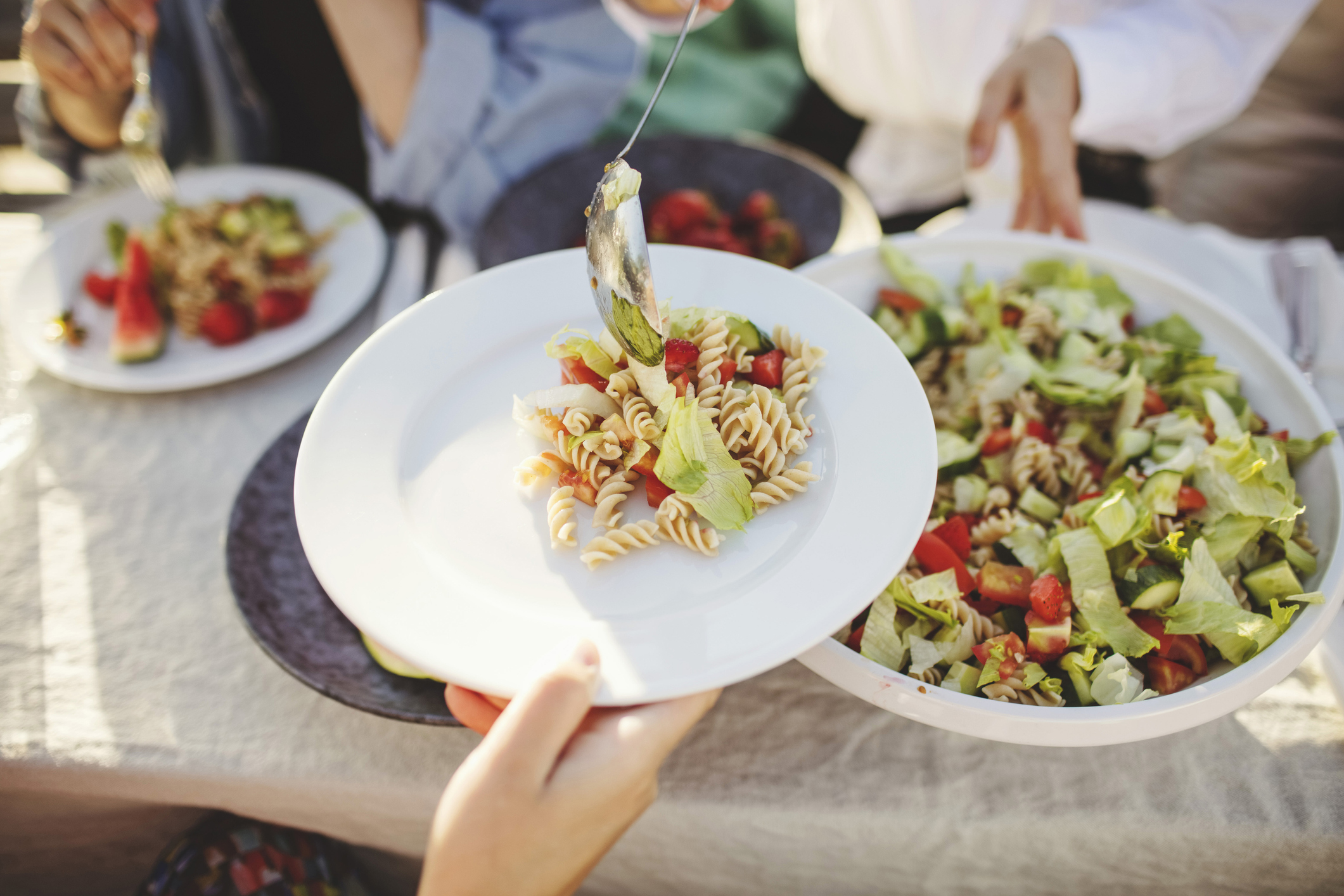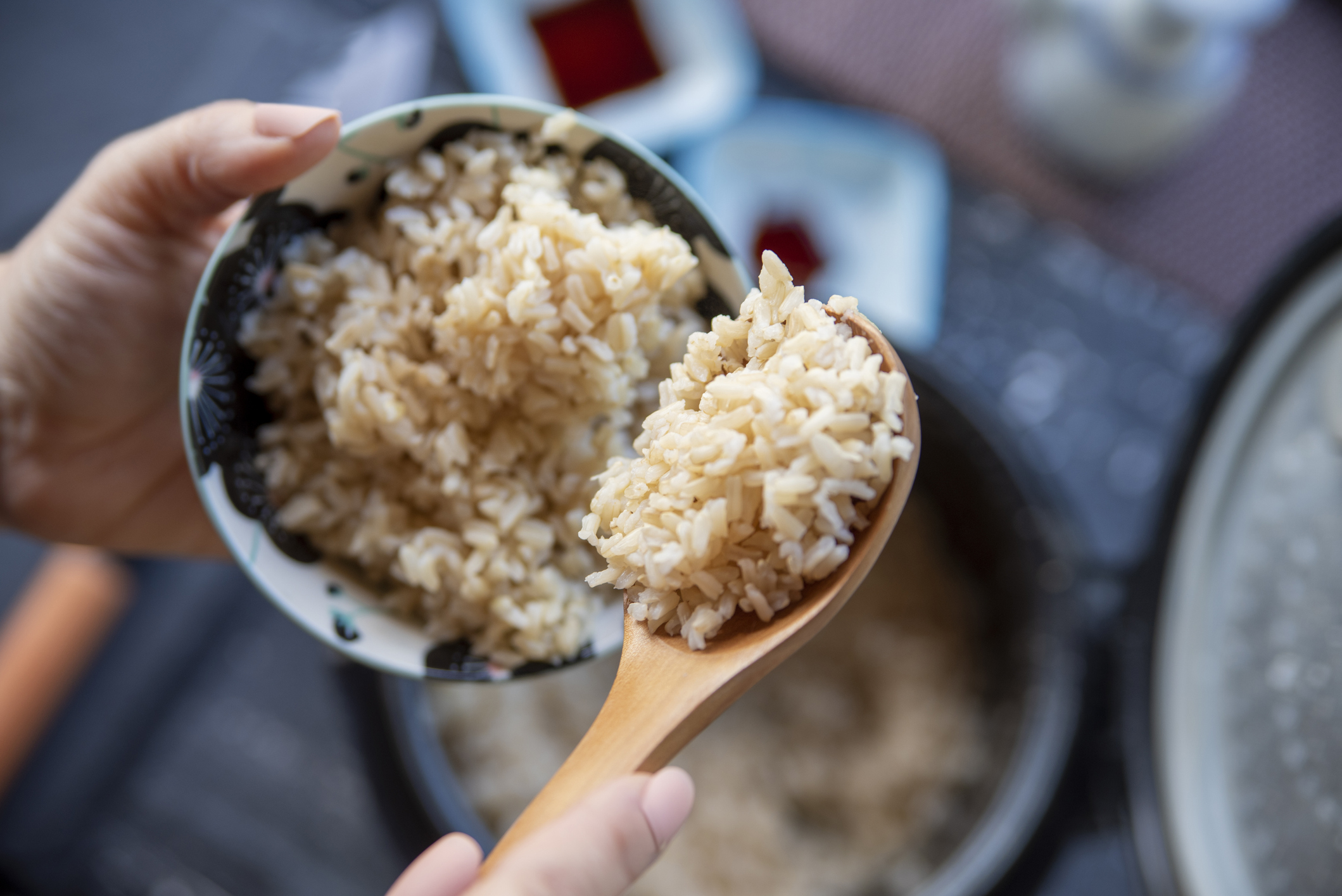Carb cycling: Everything you need to know about the latest diet trend
Say hello to the new low-carb diet...


Parenting advice, hot topics, best buys and family finance tips delivered straight to your inbox.
You are now subscribed
Your newsletter sign-up was successful
What is carb cycling? Cutting carbohydrates out completely - or at least cutting back - has been one of the most popular go-to ways of losing weight for decades, but this idea argues for a slightly different approach.
When it comes to losing weight healthily, there are certainly positives and negatives to eating plans that encourage a low-carb approach like the keto diet and the Banting diet. As carbohydrates are the body's preferred energy source, restricting them severely in your diet means the body will start to break down fat into ketones for energy, a process known as ketosis. It's an effective way to lose weight but can cause nasty side effects like bad breath, headaches, fatigue and body weakness. Evidence from Harvard School of Public Health suggests that it's only a short-term option as well, with long-term ketosis largely unsustainable.
So the idea of carb cycling, which nutritionist Rob Hobson explains is when "you have two low carb days followed by a high carb day and then repeat this over every three days", is a way of losing weight without having to cut out the essential dietary element completely. This is what you need to know about the process - and how to do it for yourself.
How to carb cycle for weight loss
If you're looking to carb cycle for weight loss, our expert recommends eating very few carbohydrate-based foods (like pasta and rice) on two consecutive days during the week. Then you eat lots of them the following day, repeating the process every three days. "The idea is that just as your body become depleted of carbs, the high-carb day kicks in to recharge energy levels and restore glycogen in the liver and muscles. This should encourage a boost in your metabolism and lead to greater fat loss," Rob says.
Essentially by doing this, you're timing your carbohydrate intake to fuel the body when it needs it most. A study by the University of Lausanne in Switzerland shows that carb cycling offers the body the maximum benefit of restoring muscle glycogen and regulating the hormones responsible for hunger - leptin and ghrelin - while not being present in the system when it's not required and when the carbohydrate will just be stored as fat.

The low-carbohydrate days, another study by Ohio State University shows, switch the body over to the fat-based energy system known as ketosis. This has been proven to speed up your metabolism and force the body to burn fat as fuel due to the missing glucose supply.
However, there are many reasons why someone may enter a carb cycle - not just weight loss. It's been proven to be an effective way to break out of a weight loss plateau, without having to change up an exercise routine, along with having benefits to those who have to go for long hours without eating through the day.
Parenting advice, hot topics, best buys and family finance tips delivered straight to your inbox.
There is more to consider if your main goal of carb cycling is losing weight. No matter the diet plan you're on, the only way to lose weight is by learning how many calories you burn every day and eating below this threshold. Known as a calorie deficit or an energy deficit, a leading study from the University of Vienna proves that it's the only assured way to weight loss. Any diet that works alongside carb cycling will include a calorie restriction element, whether through traditional methods or intermittent fasting, to help achieve this deficit. As without it, there's no weight loss.
How long does carb cycling take to lose weight?
Any diet requires a calorie deficit for weight loss so if you're implementing a carb cycle alongside this, you could see some change on the scales within just one week. Researchers at Harvard School of Health concluded from their study of high-protein and high-carb diet participants that it's the deficit that matters - not the macronutrient. NHS guidelines say that a safe rate of weight loss is between 1 to 2lb per week, which is usually when consuming no more than 1,800 calories every day.

But as with all things health, everybody's body responds differently. To find out your calorie deficit, use a calorie calculator. Other factors will play a significant role in how long carb cycling and calorie restriction takes to lose weight, our expert says, and these include:
- Genetics
- Activity levels
- Family history
- Sugar consumption
- Hormone production
- Any dysfunction with the thyroid gland
- Stress levels
- Psychological conditions such as depression, anxiety, a lack of motivation or self-esteem
If you're trying to lose weight, speak to your GP before making any significant lifestyle changes.
How long should you carb cycle?
The benefit of carb cycling rather than just completely cutting them out is that it's a more sustainable, longer-term plan. "You could try it for 30 days to see if it helps with weight loss or maintenance," Rob says. "To be honest, it's not an unhealthy way to eat in general in the long-term if you find it's an easy way to manage your diet. You're not depriving your body of nutrients as long as you eat a good variety of foods."
Which food should you eat when carb cycling?
The best type of carbohydrates to eat during your carb cycling period are wholegrain, Rob says. This might include a couple of slices of wholegrain toast or bread with lunch and some wholegrain rice for dinner.
On lower-carb days, include one of these varieties of wholegrain in just one of your meals but "high carb days involve eating them with each meal," he says. "You don’t need huge servings just a regular sized portion. This might include a little brown rice or quinoa with a stir-fry for dinner or porridge oats for breakfast. But on all days, you should still eat plenty of protein and also include fats which are healthy such as nuts, seeds, olive oil and avocado."
Carb cycle weight loss: nutritionist’s verdict
While anyone can take on a carb cycle, it's most effective for those who do plenty of exercise as part of their regular lifestyle, nutritionist and personal trainer Sarah Jane Holt explains. "Carb cycling is a very useful tool when the goal is to lose fat but still maintain high intensity training sessions and maximise recovery," she says. "It will allow you to manipulate your carb intake depending on daily activity level and individual session aims. For example, a high-carb day may be coupled with a session where you want to achieve an intense strength workout. The body is going to call on the energy from these carbs to fuel your session and allow you maintain a high workout intensity."
During a low-carb day, you could do lower-intensity exercise like jogging, yoga or pilates instead. "Keeping carbs low on these days will allow the body to use stored fat during your session, as there will be much less carbohydrates readily available. Both workouts are important when trying to lose body fat."
So whether you've just learnt how to start running and want to build up your energy for your next 10k, or love hard HIIT workout session, "the high intensity day will work on building and maintaining lean muscle. This will help keep your metabolic rate high and help the body store less sugar as fat. The lower intensity days are also important. They use stored fat for fuel and help reduce fat stores on the body," Sarah Jane says.
"The simplest and most effective way to manipulate carb intake is to keep carbs to post workout only. So if you don't train one day then keep carb intake to veg and low Gi sources only. And on training days have your grains, starchy carbs and sugars after your session. Just make sure the amount and sugar content of these carbs matches the intensity of your workout. So for low to moderate intensity training stick to low GI carbs, and higher intensity sessions follow with higher sugars and starchy carbs."

Grace Walsh is a health and wellbeing writer, working across the subjects of family, relationships, and LGBT topics, as well as sleep and mental health. A digital journalist with over six years experience as a writer and editor for UK publications, Grace is currently Health Editor for womanandhome.com and has also worked with Cosmopolitan, Red, The i Paper, GoodtoKnow, and more. After graduating from the University of Warwick, she started her career writing about the complexities of sex and relationships, before combining personal hobbies with professional and writing about fitness.